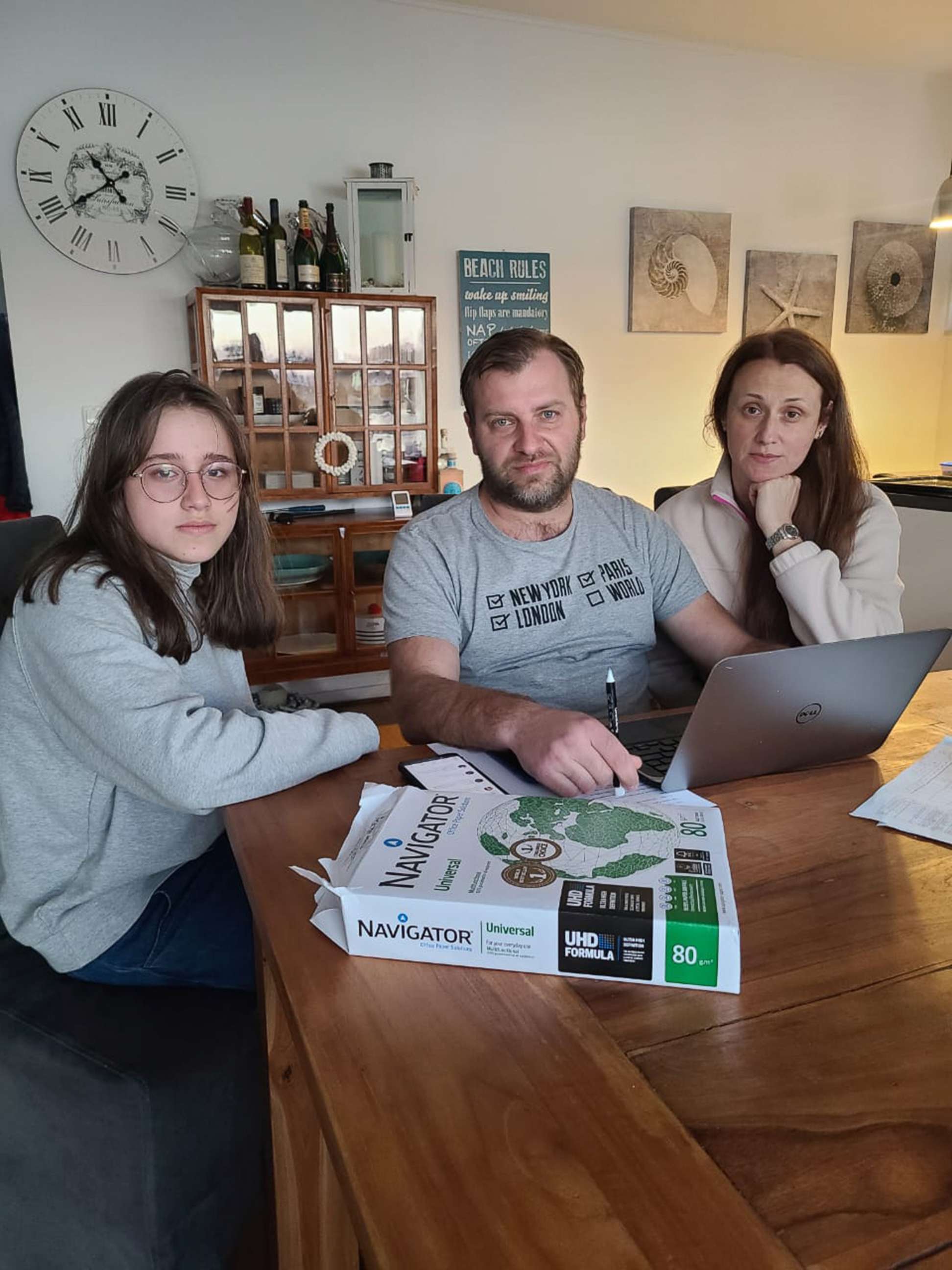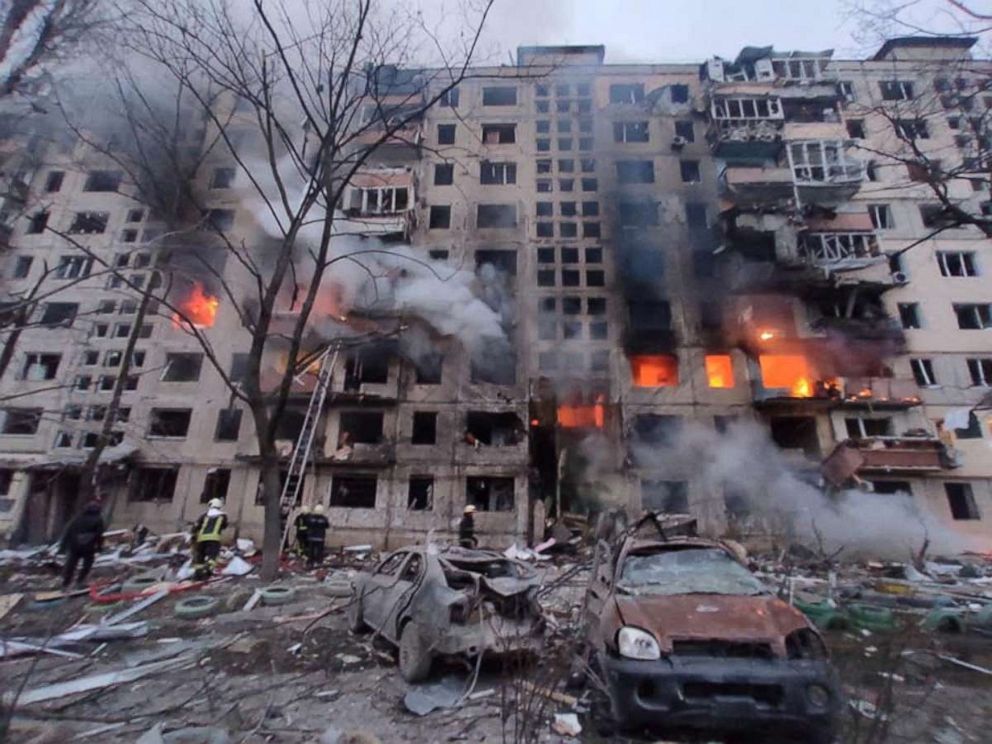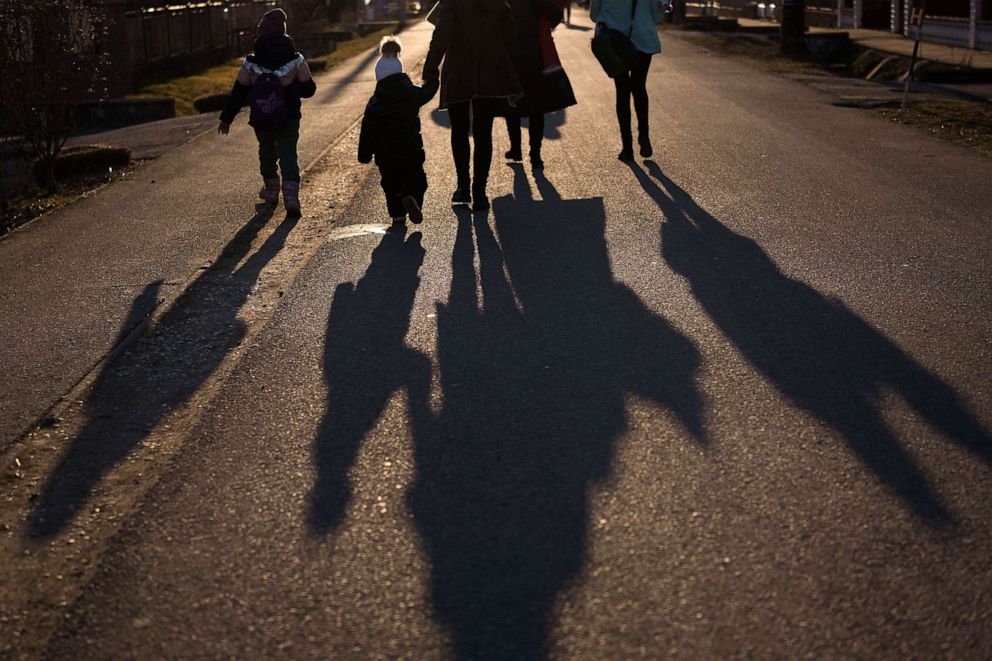Once a Ukrainian bike tour guide, a refugee now raises money for the troops
Yurii Panchenko said he raised thousands for equipment for Ukrainian troops.
KOSICE, Slovakia -- Yurii Panchenko, who fled Ukraine with his wife and only daughter hours after the first Russian missile exploded near his house, has begun raising funds through his Ukrainian mountain bike business, offering tours in and around Kyiv via Airbnb.
There are no actual tours taking place, as Kyiv, the Ukrainian capital, continues to face indiscriminate missile strikes and shelling by the Russian military. But money, which will be used to support the Ukrainian defense, keeps flowing into Panchenko’s account.
“People from all over the world have booked tours for several months ahead just to support us,” Panchenko said, adding, “Except for Russians. We haven’t had bookings from there yet.”
Before the war, Panchenko’s tours were called “Mountain Biking In Kyiv” and the business had about one request per week. He renamed them “Support Ukrainian Army Mountain Bike Tours in Kyiv" and demand flew off the chart. The idea came a few days ago, with a booking request for a bike tour on a day when bombs were falling on the Ukrainian capital.

“First, I didn’t understand. Then I read a note from the customer, where they said they didn’t want to take the tour and they just wanted to support us,” Panchenko, who’s now living with his family in Vienna, Austria, said.
Since then, he’s had more than 500 tours booked, raising more than $15,000, despite dropping his prices to make the symbolic adventure more affordable.
Panchenko is one of many Airbnb hosts in Ukraine using the platform to raise money. More than 14,300 Airbnb Experiences were booked in Ukraine in the week prior to March 9, the company told ABC News.
Hosts received about $360,000 in the same time period, the company said. Airbnb earlier this month announced it was temporarily waiving guest and host fees for bookings in Ukraine.
“We are so humbled by the inspiring generosity of our community during this moment of crisis," said Haven Thorn, a company spokesperson.
While there's no way to know how recipients use the donations, Airbnb said it's "actively evaluating" the listings in Ukraine to "detect and deter fraudulent activity."
"The vast majority or most of our hosts are everyday people sharing the home in which they live," Thorn said. "People considering booking to donate can also look at a Host's profile to see how many listings they have and check the history of reviews on the listing to see how long the listing has been active.”
The bike mechanic from Kyiv said he has used the money to buy fuel and medicine in support of evacuation efforts in Ukraine. He said he also purchased a special thermal camera worth about $1,700 for one of Ukraine’s elite military units.
“We are also planning to send the troops other special devices, body armours and helmets,” Panchenko added.

Panchenko said his family has barely anything to spare, yet they’re not planning to keep any of the Airbnb proceeds for their personal use. They fled to Vienna through Romania on a four-day ride, having packed a single bag of clothes and essentials while carrying less than a thousand dollars. They managed to find free temporary accommodation and support in the Austrian capital, where Panchenko now works as a bike mechanic in a repair shop.
“We’ll be here for at least three weeks. We’re faring much better than other families who are still stuck in Ukraine. We’re trying to help those in need as much as we can,” Panchenko said.
Panchenko’s family home is near the city airport in Kyiv, but when the first Russian cruise missiles hit dangerously close, they were gone in 15 minutes, he said. They hopped into their car and headed off early in the morning.
“We were actually ready for something like this to happen and had some essentials pre-packed. But we never expected ballistic missiles to be raining down on us,” Panchenko said.

He managed to escape with his family before Ukraine banned all men aged 18-60 from leaving the country and started conscripting them into the military.
“I am not a military man and I knew I could be useful from elsewhere, like sending help from abroad,” Panchenko said.
Panchenko said his family has no discernible plan for the future.
“We’re currently living in the moment. We don’t know what’s going to happen to us next week,” Panchenko said.
He wants to return to Ukraine with his family once the war is over and rebuild his life, he said.
“But if they’ll need me to go back and fight, I’ll be ready,” he said.




